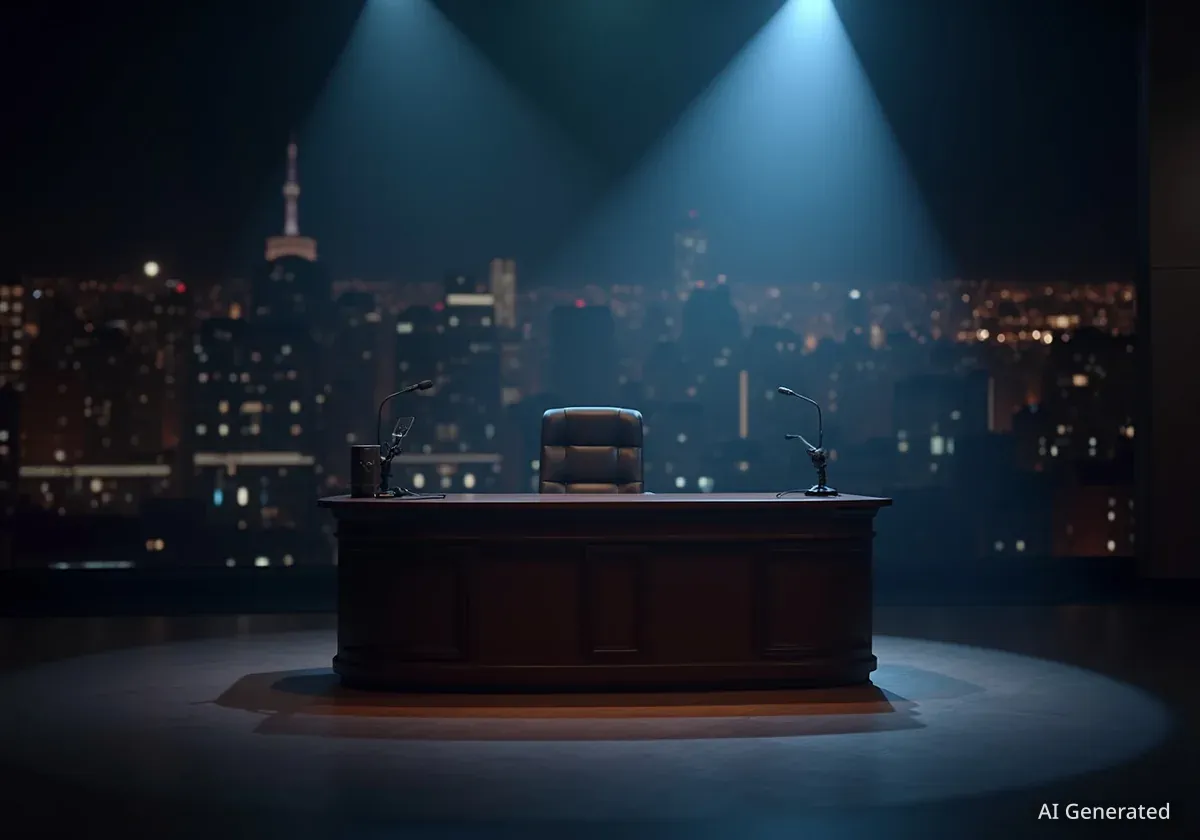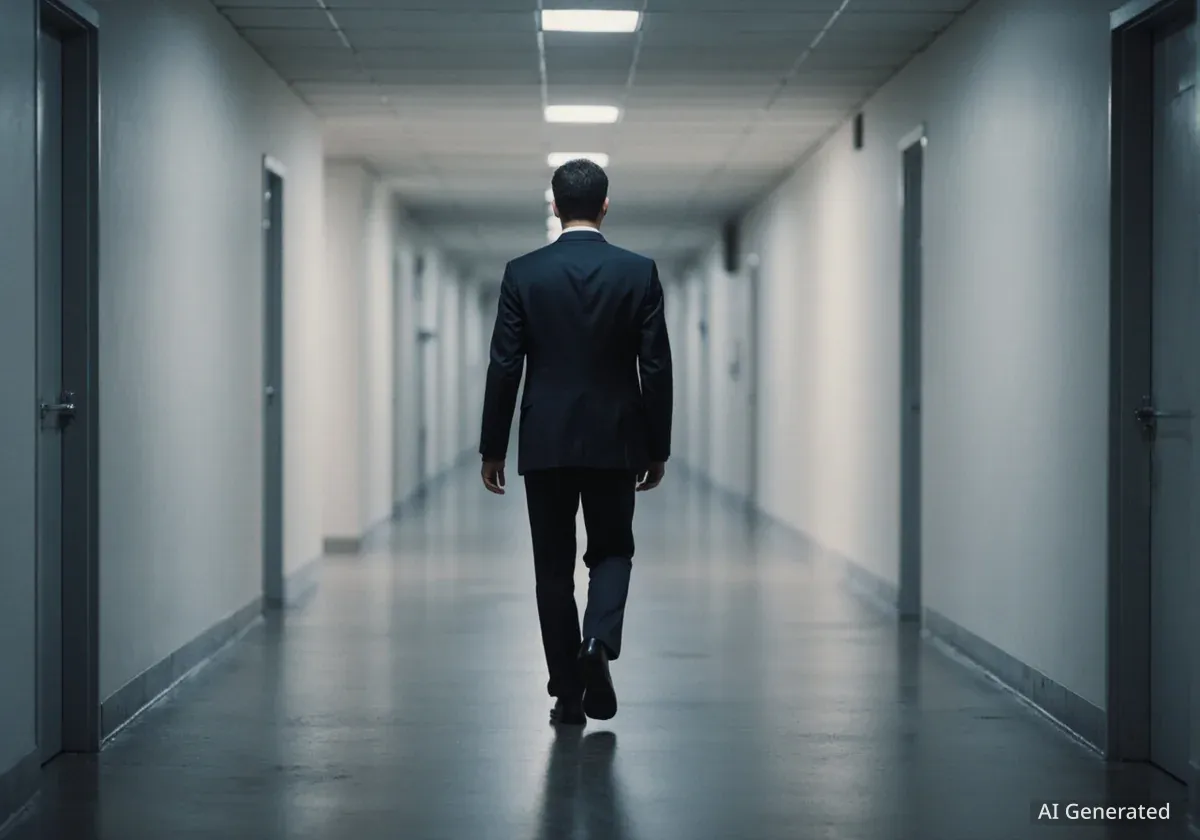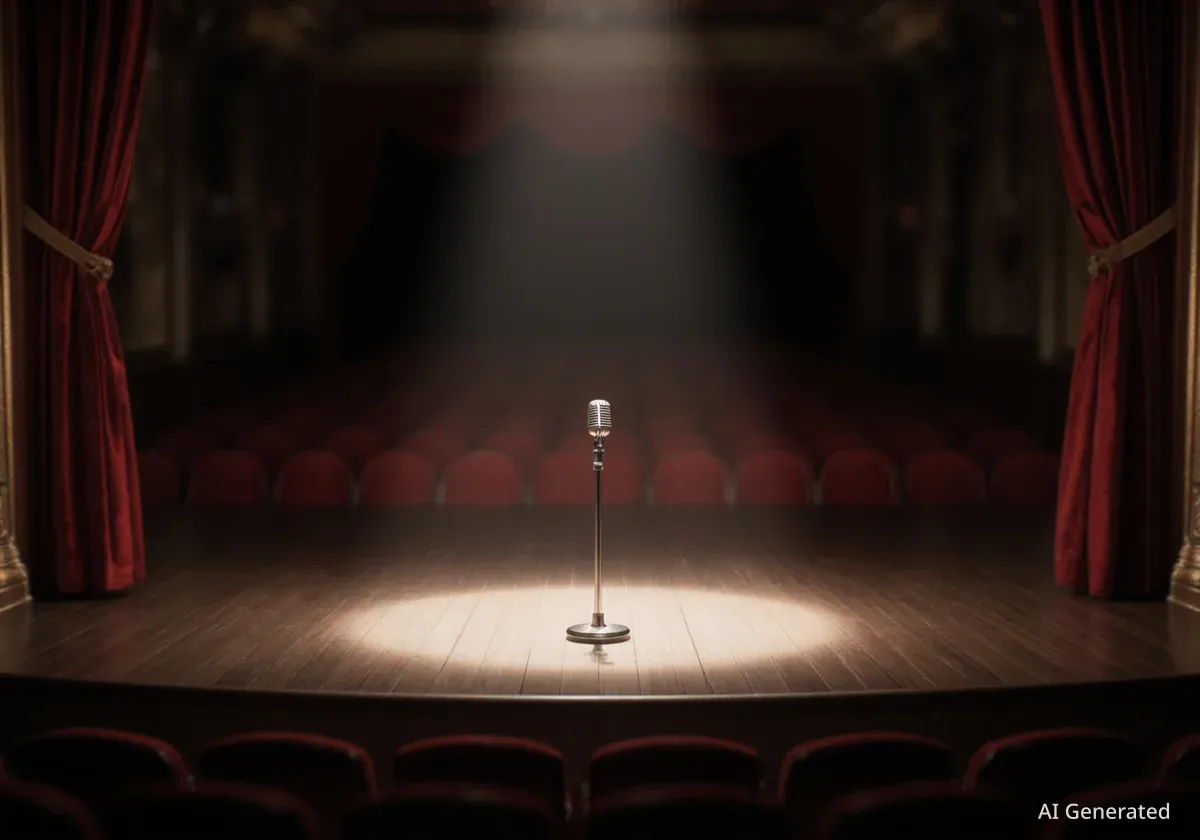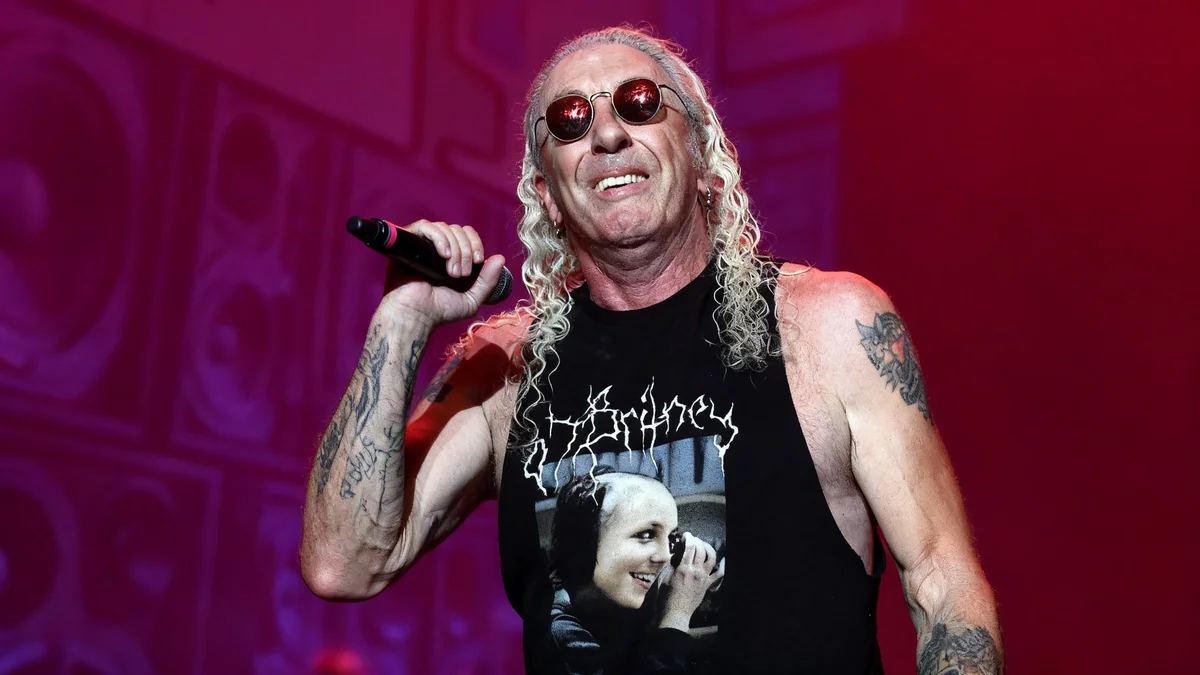Television host Jimmy Kimmel returned to his late-night program this week, using his opening monologue to address recent criticisms from former President Donald Trump. Kimmel directly discussed Trump's comments, including a threat to initiate an inquiry into the host.
During his broadcast, Kimmel referenced Trump's public statements. Trump had called Kimmel's previous appearance at the Academy Awards "GARBAGE" and suggested a government investigation into the host's conduct. Kimmel's monologue marked his first show back after a temporary break.
Key Takeaways
- Jimmy Kimmel returned to his late-night show.
- He addressed former President Trump's criticism directly.
- Trump had called Kimmel's Oscars performance "GARBAGE."
- Trump also threatened an inquiry into Kimmel.
Kimmel's Return Monologue Focuses on Trump's Statements
Jimmy Kimmel opened his show with a clear focus on the public dispute. He highlighted Trump's remarks made after Kimmel hosted the Academy Awards. Trump's comments were posted on social media and widely reported by news outlets.
Kimmel stated that Trump's reaction was an attempt to "cancel me." This phrase refers to the concept of public figures facing widespread disapproval or boycotts, often leading to professional consequences.
The host's address was both direct and unreserved. He used his platform to respond to the former president's criticisms, emphasizing the nature of the remarks made against him.
Fact Check
Former President Donald Trump publicly criticized Jimmy Kimmel's hosting of the Academy Awards on social media, describing it as "GARBAGE" and suggesting an investigation into the host. These statements were widely reported.
The "Cancel Me" Accusation
Kimmel's use of the term "cancel me" directly challenged Trump's perceived intent. He suggested that Trump's comments were not merely critical but aimed at undermining his career.
This exchange reflects ongoing tensions between political figures and media personalities. Public criticism from high-profile individuals often draws significant attention and debate.
The monologue lasted several minutes, allowing Kimmel to elaborate on his perspective. He aimed to provide a comprehensive response to the accusations leveled against him.
"He tried to cancel me," Kimmel stated during his monologue, referring to former President Trump's social media posts following the Academy Awards.
Background of the Controversy
The dispute originated after Kimmel hosted the 96th Academy Awards. During the ceremony, Kimmel made several jokes that were perceived by some as political. One notable moment involved a reference to Trump's social media activity.
Trump responded shortly after the ceremony. His social media post criticized Kimmel's performance and suggested that the host was "unprofessional." The former president’s remarks quickly gained traction online and in media reports.
This incident is not the first time a late-night host has faced criticism from political figures. Such interactions are a recurring theme in modern media and politics.
Context on Late-Night Commentary
Late-night talk shows in the United States often feature political commentary and satire. Hosts frequently discuss current events and political figures, leading to various reactions from the public and those in power. This has been a consistent aspect of late-night television for decades.
Trump's Threat of Inquiry
A specific point of contention was Trump's threat of an inquiry. He suggested that "maybe we should look into" Kimmel's actions. This statement raised questions about potential governmental overreach and freedom of speech.
Such threats from a former president are unusual in public discourse. They underscore the heightened political environment in the United States.
Kimmel addressed this threat directly in his monologue. He did not shy away from discussing the implications of such a statement.
- The Academy Awards took place on March 10, 2024.
- Kimmel hosted the event for the fourth time.
- Trump's comments were made on his Truth Social platform.
- The comments sparked widespread media coverage and debate.
Public and Media Reaction
Kimmel's return and his monologue generated significant media attention. News outlets reported extensively on his response to Trump. Social media platforms also saw a surge in discussions about the incident.
Many viewers expressed support for Kimmel, while others sided with Trump. The event highlighted the polarized nature of political and entertainment discourse in the country.
According to social media trends, the hashtag related to Kimmel's return trended for several hours after his broadcast. This indicates a high level of public engagement.
Impact on Late-Night Television
The incident demonstrates the continued relevance of late-night television as a platform for political commentary. Shows like Kimmel's often serve as a space where public figures can respond to major events and criticisms.
The interaction between Kimmel and Trump underscores the blurred lines between entertainment and politics. Hosts frequently use humor and satire to address serious national issues.
This type of public exchange can also influence audience perceptions of both the host and the political figure involved. It often leads to increased viewership for the programs in question.
Audience Engagement
Analysis of television ratings suggests that episodes featuring direct political commentary often see a temporary increase in viewership, particularly when a high-profile dispute is involved. These events can generate significant buzz and draw in a wider audience.
Looking Ahead: The Ongoing Dialogue
The exchange between Kimmel and Trump is part of a larger, ongoing dialogue in American media. Political figures and entertainment personalities frequently engage in public debate, using their platforms to express opinions and react to events.
Kimmel's monologue is likely to be discussed further in various media circles. It contributes to the broader narrative about the role of satire and criticism in a democratic society.
The incident also highlights the power of social media in amplifying such disputes. Trump's initial comments and the subsequent reactions spread rapidly across digital platforms, reaching millions of users.
As the political landscape continues to evolve, interactions between media figures and politicians are expected to remain a prominent feature of public discourse. These exchanges often provide insight into current cultural and political tensions.




